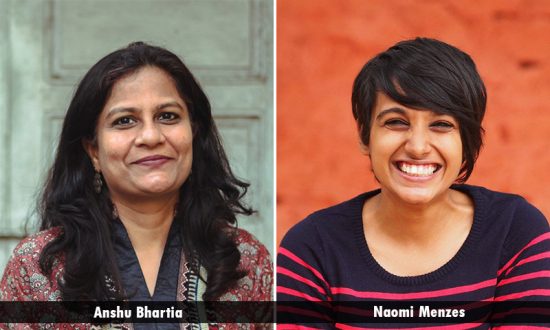Social entrepreneurs are unparalleled catalysts of social change. They question critical social issues, find innovative solutions and mobilise resources as well as communities to address pressing problems in the country. Based on the problem at hand, target segment, and their impact vision, they set up NGOs or social enterprises.
In the last 10 years, in my social sector journey, I have met 500 passionate individuals who are solving or wanting to solve a social issue that they have experienced or closely witnessed. Whether it be growing up with a sibling with intellectual disabilities, or being/meeting a victim of sexual abuse, or the tragic consequences of economic loss, or distressed by ecological degradation, the list is endless. Social entrepreneurs dedicate their time, risk their capital, and pool resources to move the needle on the ground.
Why support social entrepreneurs
The Government of India through NITI Aayog has been designing solutions and schemes to address India’s key problems. Public institutions, however, have their limitations on experimentation, nimbleness and flexibility, especially when creating customised solutions for last-mile vulnerable populations. Socially conscious corporates, individuals and NGOs have been working on the ground since Independence.
Despite the efforts, India still stood at 112 out of 156 countries on the UN’s Sustainable Development Goals in 2019. Reasons for the country’s low ranking can be linked to its large and diverse population with complex problems at a community-level that require contextualised local solutions and eventually, local ownership.
With the on-going global pandemic, the UN fears that the timeline to achieve its Sustainable Development Goals by 2030 has been pushed back by at least 40 years. New problems arising from the pandemic and its immediate aftermath, therefore, will require new solutions.
Clearly, we have miles to go.
The impact of Social Entrepreneurs
New, catalytic innovation will be the need of the hour in a post-COVID-19 India. Whether it is improving the livelihoods of farmers, or raising awareness around gender equality, or up-skilling youths to empower families trapped in a poverty cycle, or making mental well-being available across the spectrum, the value and depth of the work of social entrepreneurs will have a cascading effect over generations to come.
In the last 13 years of our work at UnLtd India, we have seen how efforts of even one early-stage social entrepreneur can uplift a community – be it reviving artisan communities, working in man-animal conflict areas, educating ragpicker’s children or even rehabilitating beggars. Social entrepreneurs working at the grassroots-level do not just identify a problem that is deep-seated in a community. They create solutions and design activities, keeping in mind the cultural dogmas that drive the community that they work in.
During the national lockdown, early-stage social entrepreneurs quickly pivoted and created products relevant to address burning issues born from the crisis – eco-friendly hospital beds, UV sanitisers for hospitals, masks productions from unused raw material, solutions to reduce the spiralling consumption of single-use plastic.
In the education sector, it was easy to conceptualise online classes for people with smartphones and tablets. Social entrepreneurs working with underprivileged children, however, found other ways to continue educating and occupying them in meaningful ways by leveraging multiple channels, including SMS and WhatsApp, community radio, physical handouts, and community teachers. Some other social enterprises even cracked ways to host dance- music- poetry- fitness classes. Children with hearing impairment were also able to start online classes as the entrepreneurs first taught their parents and encouraged them to be actively involved in their children’s education.
The relief work on the ground has been deeply recognised and acknowledged, and this was only possible because of the trust earned by social enterprises who have continuously been engaging with the communities that they work with.
How can social entrepreneurs accelerate development?
To fully address global crises and alleviate harm to vulnerable communities, I believe social entrepreneurs need long-term, unrestricted support to re-build and reimagine systems that address issues rather than exacerbate them. “Entrepreneurs have the ability to hit the bullseye that no one sees versus the target that everyone sees.” This quote by Lyft CFO, Brian Roberts, sums the irreplaceable value of social entrepreneurs.
Supporting them will ensure that they have the necessary resources to future-proof their work for the long-term. For the country to successfully get out of this crisis, we must funnel our support to those who are addressing issues and breaking down systemic barriers. Stabilising and sustaining existing models is the need of the hour.
As leading U.S entrepreneur Seth Gordin rightly said, “Change never fails because it’s too early. It almost always fails because it’s too late.”
About Anshu Bhartia

Anshu Bhartia is the CEO of UnLtd India, a launchpad for social entrepreneurs who are designing and executing innovative solutions to pressing problems in India. Over the last 12 years, UnLtd India has incubated 236 social entrepreneurs who have impacted more than 5.6 million lives through their for-profit or not-for-profit organisations. Anshu has over 26 years of experience working seamlessly in for-profit global and non-profit organisations. Prior to UnLtd India, Anshu was the CEO of Revitalising Rainfed Agriculture Network (RRAN) and Friends of WWB, a leading Financial Services Organization where Anshu was instrumental in launching an innovative credit product for farmer producer organisations (FPOs) and for facilitating access for solar products and water and sanitation facilities. Her passion lies in mentoring and taking social organisations to scale.
About Naomi Menezes

Naomi Menezes leads communications and marketing at UnLtd India. Prior to joining UnLtd India, Naomi worked as a copywriter and business development strategist. An avid reader with a flair for design, Naomi works with early-stage social entrepreneurs to effectively communicate their work.


